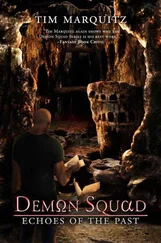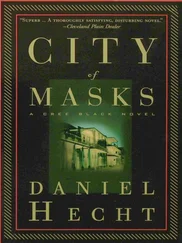Daniel Hecht - Land of Echoes
Здесь есть возможность читать онлайн «Daniel Hecht - Land of Echoes» весь текст электронной книги совершенно бесплатно (целиком полную версию без сокращений). В некоторых случаях можно слушать аудио, скачать через торрент в формате fb2 и присутствует краткое содержание. Жанр: Триллер, на английском языке. Описание произведения, (предисловие) а так же отзывы посетителей доступны на портале библиотеки ЛибКат.
- Название:Land of Echoes
- Автор:
- Жанр:
- Год:неизвестен
- ISBN:нет данных
- Рейтинг книги:5 / 5. Голосов: 1
-
Избранное:Добавить в избранное
- Отзывы:
-
Ваша оценка:
- 100
- 1
- 2
- 3
- 4
- 5
Land of Echoes: краткое содержание, описание и аннотация
Предлагаем к чтению аннотацию, описание, краткое содержание или предисловие (зависит от того, что написал сам автор книги «Land of Echoes»). Если вы не нашли необходимую информацию о книге — напишите в комментариях, мы постараемся отыскать её.
Land of Echoes — читать онлайн бесплатно полную книгу (весь текст) целиком
Ниже представлен текст книги, разбитый по страницам. Система сохранения места последней прочитанной страницы, позволяет с удобством читать онлайн бесплатно книгу «Land of Echoes», без необходимости каждый раз заново искать на чём Вы остановились. Поставьте закладку, и сможете в любой момент перейти на страницу, на которой закончили чтение.
Интервал:
Закладка:
The DNS concept helped explain the difficulty of providing a physical record of a ghost's presence. It particularly appealed to Cree because it supported her conviction that ghosts were linked to witnesses and manifested only within particular psychosocial environments: People experienced ghosts when their mental and emotional states created neurological conditions that sensitized them to the emanations of noncorporeal entities.
In the case of the flicker phenomenon, the well-documented pulsing of lights in the vicinity of paranormal events could be related to either EVP or DNS. Some form of energy could be affecting the wiring of a house or the filaments of a lightbulb and cause currents to fluctuate. Or it could affect the soft, wet wiring of the brain, causing the visual sensing circuits to misbehave. Subjectively, the end result would be indistinguishable to a witness.
"So, for the DNS, you're thinking functional microelectroencephalogram?" Ed suggested.
FMEEG was a medical technology that monitored tiny variations in the brain's electrical activity. Beyond its use in detecting brain impairment or seizure activity, FMEEG could be used to map normal brain function, allowing researchers to watch which areas lit up when the subject felt a particular emotion or responded to a particular stimulus. It had several advantages over functional MRI, one of them being that the scalp-wiring harness was light and minimally intrusive, and could easily be employed at the sites of hauntings.
"Think you can get the stuff?"
"On a Saturday afternoon or Sunday morning? What're the odds, Cree? Shit."
"Call Frank. Tell him we need the gear for a week, we'll Air Express it back if we have to."
"Yeah." Ed paused, no doubt jotting a note to call their skeptical but helpful friend Frank Markowitz. Frank worked at Cascades Neurological Research Institute, coordinating multisite research initiatives with other labs and clinics. He was occasionally willing to bend the definition of "lab" enough to rent equipment to PRA.
"Okay," Ed said. "So. Otherwise. How's it going? You sound, um, good-decisive. In charge, um-"
"Bossy?"
"Well, I wasn't going to-"
"Julieta McCarty has an assertive side, okay? It's her get-things-done mode."
"So, what's the other side?"
"I'm okay, Ed," she said defensively. The other side is grief and sorrow, she thought, fear and self-doubt. Spinning out of control into anger and regret and making huge mistakes by acting upon those feelings. If only it were possible to screen out which aspects of a personality you absorbed. But of course it wasn't.
She repressed the urge to ask him where he was going tonight, wondering inappropriately if he was dating someone, at last moving past his attachment to Cree Black and her indecisions and complications. But she just thanked him. He urged her to take good care of herself, and they said good-bye.
After she hung up, Cree was left recalling the first time she'd heard the EVP recording Ed had made in Gloucester. They'd listened to it together in his tech studio in Seattle, and it had left them both badly shaken. Emerging from a mist of electronic noise, barely more coherent than static and hum, a plaintive human voice Jenny? Jen? Where are you? I'm so sorry. You must believe me. Where are you, Jenny?
Some person or fragment of a person, lost in a timeless electronic ether, searching for a companion and a world it once knew, unaware that neither existed anymore.
She would never forget the anguish of fear and sympathy she'd felt as she listened to it. In a way, it was far more frightening than the direct encounters she'd had. The fear was not one of danger in any ordinary sense-that the ghost could hurt you. It came from understanding with stark clarity how lost and alone that being was, and wondering, Is that what will happen to me?
She quickly packed the thought away, picked up the phone again, and pecked in Joyce's number. Busy.
Thinking to kill a few minutes and try again, she went back to the ward room to finally begin reading the materials Mason had provided her. This time she went straight to some of the older source material. She read it in fascinated horror.
She was struck by how many of Tommy's symptoms resembled the typical case: the intensifying cycles followed by relative normalcy, the convulsions and contortions. The often-reported breathing problems, she saw now, could easily result from the asynchronous breathing they'd observed in Tommy-obviously, the intruder and the host vying for control of basic bodily functions. A chilling idea.
On the bright side, she consoled herself, at least he ain't vomiting up toads and broken glass.
But reading on, she discovered another typical aspect of possession that struck her as particularly relevant and disturbing. Even discounting most incidents as cases of what was now called hysteria, epilepsy, or schizophrenia, this was a well-documented phenomenon that had been observed well into the age of rational medicine, right into present-day cases of dissociative identity disorder.
Possession could spread. It was catching.
In fact, most historical incidents of possession weren't confined to single individuals; the records showed dozens of "epidemics" of possession. In 1656, almost the whole community of Paderborn was "taken," but more often the contagion spread in contained populations like hospitals, orphanages, schools, and convents. Groups of nuns seemed particularly susceptible: 1491 in Cambrai, 1526 in Lyons, 1554 in Rome, on and on, with the 1634 episode in Loudon being perhaps the most famous.
After nuns, children were the most likely to get possessed in large numbers. Rome, 1555, eighty children at an orphanage; Amsterdam, 1566, thirty boys in a hospital; 1744, a group of young girls in Landes. In a famous American incident, the Goodwin children, the problem began with the eldest daughter and spread to the other three siblings: They went into fits, had convulsions, and contorted their bodies so that their spines, shoulder blades, elbows, wrists, and other joints appeared impossibly deformed.
The mechanisms of "contagion" might be responsible for the apparent paralysis of the other boys in Tommy's dorm, and the limb-locked, shivering horses. Cree had felt it herself: that stunning, numbing force around Tommy during his extreme moments.
Then there were the reports of the victim hurting himself, or attempting suicide. Was that something they had to worry about with Tommy?
Feeling overwhelmed, she pulled out of a particularly grisly case history and leafed through the remainder of the stack. There was a lot more here deserving close review; of particular interest were Mason's own studies and others that drew parallels between possession and multiple personality disorder, now called dissociative identity disorder. She really should read these, and the sooner the better.
But not now, she decided. She glanced at her watch and was startled to see the time: She'd planned to give Joyce a few minutes to get off the line, and here it had been over half an hour. She put the papers aside, went back to the nurse's office, and dialed. This time it rang.
"Cree! Thank Gawd you called!"
"Oh?"
"I have no idea what you're supposed to wear down there. I mean, what? Cowboy outfits? I haven't got a thing."
Cree chuckled. It was nice to hear Joyce's Long Island accent and improbable husky contralto, and her spirit rallied considerably. "No cowboy outfits. Your usual will do. If you want to walk around or ride the horses, you'll need jeans, a sweater, and hiking boots. And a good coat-it's freezing at night. But definitely no cowboy outfits. Please!"
"Too bad." Joyce laughed. "So what's up?"
"Any chance you can do some preliminary research tomorrow, before your flight?"
"Not tonight? How very considerate of you."
Читать дальшеИнтервал:
Закладка:
Похожие книги на «Land of Echoes»
Представляем Вашему вниманию похожие книги на «Land of Echoes» списком для выбора. Мы отобрали схожую по названию и смыслу литературу в надежде предоставить читателям больше вариантов отыскать новые, интересные, ещё непрочитанные произведения.
Обсуждение, отзывы о книге «Land of Echoes» и просто собственные мнения читателей. Оставьте ваши комментарии, напишите, что Вы думаете о произведении, его смысле или главных героях. Укажите что конкретно понравилось, а что нет, и почему Вы так считаете.












